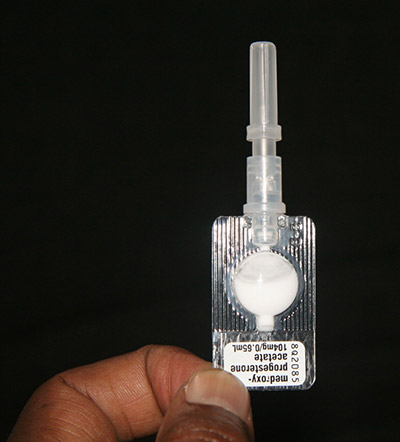In 2021, FHI 360 committed an estimated US$85 million over five years to support the goals of Family Planning 2030 (FP2030), a global movement dedicated to advancing the rights of people everywhere to access reproductive health services safely and on their own terms. As this effort advances, together we must reflect on the question: What is the future of family planning?
Tagged: SRHR
-
-
COVID-19 has highlighted inequalities worldwide and is showing us that our systems — and the progress we have celebrated — may not be as resilient as we thought. This month’s guest on A Deeper Look podcast, Dr. Natalia Kanem, Executive Director of the United Nations Population Fund (UNFPA), incisively shines a light on the strengths and weaknesses in development work revealed by the pandemic.
Dr. Kanem is one of the great leaders on the international stage who speaks with moral clarity and forcefulness on sensitive issues of sexual and reproductive health and women’s rights. She discusses the many ways she and UNFPA are meeting this year’s extraordinary challenges and shares her views on the importance of continued progress on gender equality in the face of the issues presented by the global pandemic. Dr. Kanem sees this moment in history as an unexpected opportunity to engage a new generation in finding ways to address systemic barriers to gender equality and social equity.
-
The full version of this post originally appeared on Medium.
 Self-management. Self-testing. Self-awareness. These are three pillars of self-care interventions that can help promote the sexual and reproductive health and rights (SRHR) of women, men and youth according to new guidelines released by the World Health Organization (WHO). WHO defines self-care as “the ability of individuals, families and communities to promote health, prevent disease, maintain health, and cope with illness and disability with or without the support of a healthcare provider.” Self-care as part of reproductive health is not a new concept. Throughout history, people have sought to control their fertility. However, in the context of a global shortage of trained health care workers and with an estimated 214 million women in developing countries who still have an unmet need for contraception, both new and existing SRHR self-care interventions can play a critical role in helping close the gap while at the same time empowering individuals to take control of their health.
Self-management. Self-testing. Self-awareness. These are three pillars of self-care interventions that can help promote the sexual and reproductive health and rights (SRHR) of women, men and youth according to new guidelines released by the World Health Organization (WHO). WHO defines self-care as “the ability of individuals, families and communities to promote health, prevent disease, maintain health, and cope with illness and disability with or without the support of a healthcare provider.” Self-care as part of reproductive health is not a new concept. Throughout history, people have sought to control their fertility. However, in the context of a global shortage of trained health care workers and with an estimated 214 million women in developing countries who still have an unmet need for contraception, both new and existing SRHR self-care interventions can play a critical role in helping close the gap while at the same time empowering individuals to take control of their health.This July is self-care month, and FHI 360 is excited to join partners around the world in advancing strategies to meet the SRHR needs of women, men and youth through evidence-based self-care interventions. There are six ways that FHI 360 is helping advance the SRHR self-care agenda.
Read the complete post.
